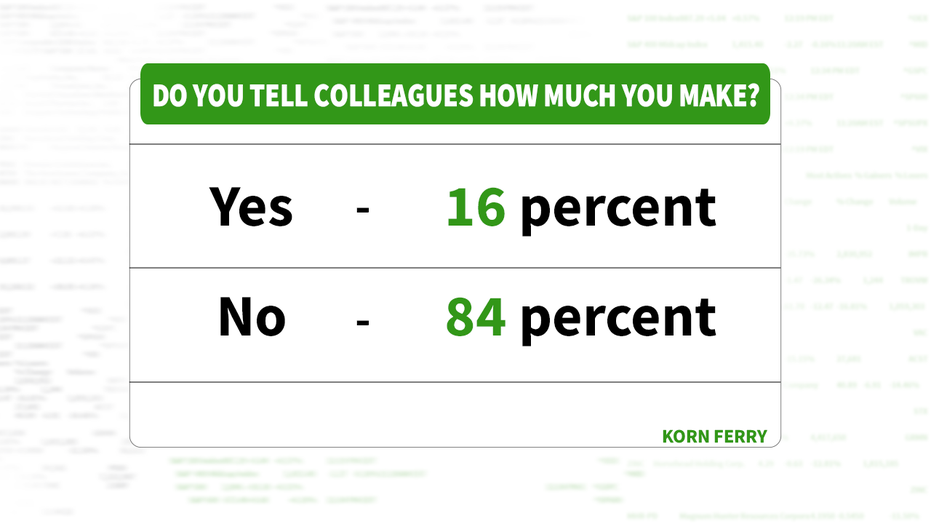Why sharing your salary could be helpful
Talking about how much we make can be really uncomfortable.
However, a new Korn Ferry survey found more people are disclosing their salary, and that finding out how much coworkers are making can influence their happiness at a job or even whether they stay in a current position.
Of those surveyed, 24 percent of working professionals said it's appropriate to tell a coworker how much their salary is.

Is it appropriate to share?
When asked about how it was viewed to share your salary five years ago, 37 percent of those surveyed said it's more appropriate now than it was then to share what you make, which shows a growing acceptance of being more open and honest about our paychecks.
This may be due to a person's age. The survey found 94 percent of respondents thought younger workers are more open with how much they make than older generations.

What age group shares?
"The social, political and regulatory landscape is changing with respect to transparency in compensation communications."
“This topic will likely intensify in the next several years as Europe and North America continue to move toward increased transparency in reporting compensation data that was once shielded from public scrutiny," global head of Korn Ferry Rewards and Benefits Solutions Bob Wesselkamper said. "Employers need to be ready.”

Does your employer share salaries?
While many say it's fine to talk about, fewer people are willing to actually take action and share. A quarter of people surveyed said their colleagues have told them how much they make, but only 16 percent said they've told their coworkers how much they make.

Do you tell your colleagues?
But what do we do with that information?
Those surveyed said if they found out a coworker makes more than they do, 55 percent would demand a raise but would be careful to not mention the coworker's name when doing so.
About 15 percent said they would name drop their colleague when asking for a raise.

What would you do?
“Companies need to ensure that compensation is commensurate with the value that employees bring by putting in place the right compensation strategy, structure, design and benchmarking processes across the organization to secure fairness and equity in treatment for employees,” Korn Ferry Senior Client Partner Tom McMullen said.
“If employees don’t believe that compensation practices are equitable, this data suggests that they will leave their organization – or worse stay but be less engaged and productive.”
CLICK TO READ MORE ON FOX BUSINESS
Now, what happens if they don't get that raise? Nearly one-third of those surveyed said they would leave their job and half of those surveyed said they would stay but would become less engaged.




















